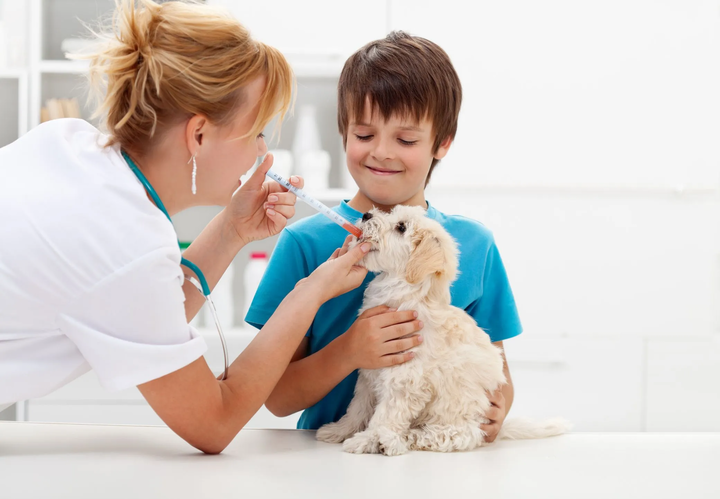In Oman, when it comes to animal care, a lot happens behind closed doors that people don’t usually notice. One of the key players working silently in the background is the group of veterinary product distributors in Oman. These folks make sure that medicines, supplements, and health care items for animals are available where and when needed, whether it’s a busy veterinary clinic in Muscat or a small goat farm in the outskirts of Nizwa.
Now think about this, an animal falls sick, a vet diagnoses the issue, but if the right medicine isn’t available, what’s the point? This is exactly why distributors matter. They are the unseen link between the manufacturer and the end user, and without them, the system can’t function.
Distributors Do Much More Than Just Selling Products
Distributors aren’t just merchants stacking boxes. They understand how animal healthcare works. From storage temperature for vaccines to how fast certain products move in different seasons, these guys know it all. Especially in a country like Oman where the climate is hot for most of the year, storage and transport become a technical job on their own.
Take vaccines, for example, these aren’t something you just store anywhere. Cold storage, insulated boxes, and delivery within specific hours are all part of the job. Same with oral drenches and injectables. If handled the wrong way, the product could be useless or worse, harmful. The veterinary product distributors in Oman, who know this, are the ones who last.
They usually have direct links with manufacturers in Turkey, Europe, or UAE. Some even maintain their own import setups, while others work through authorized middlemen. Either way, they bring in original, certified stock, and for farmers or clinics, that assurance is gold.
Who They Serve and What They Supply
In urban areas, the focus is shifting more towards pets. People in Muscat or Salalah are getting more conscious about pet health. They want imported tick sprays, quality supplements, and even dental products for dogs and cats. Veterinary distributors have adapted by keeping a solid range of pet items, shampoos, nutritional pastes, calming aids, etc.
On the rural side, it’s still all about livestock, cows, goats, camels, poultry. Distributors know what products are always in demand, dewormers, feed boosters, antibiotics, vitamin injections. They plan ahead based on seasonal cycles like lambing, calving, or poultry rotations. Some even remind their regular clients when to stock up before peak times.
Communication and Trust Are Key
Unlike big corporates, most veterinary product distributors in Oman rely on direct communication. Clients have their WhatsApp numbers saved. They’ll call or text directly for a quote, check stock, or even place orders. In return, the distributor keeps notes of what each client usually orders and tries to maintain that stock in advance.
It’s not uncommon to see a vet in Sohar call his preferred distributor and get the products delivered the same day. That trust doesn’t come from marketing. It comes from years of delivering the right stuff, at the right time, without excuses.
And yes, pricing matters too, but in this field, quality usually wins. No vet wants to risk their client’s animal with a cheap or fake product. That’s why good distributors stick with registered brands and proper paperwork. Batch numbers, manufacturing details, and expiry dates, everything is tracked and shared transparently.
Challenges They Handle Daily
Running this kind of business isn’t easy. There are daily challenges, and only those with a solid grip survive. First, there’s the heat. Summers in Oman are intense, and many veterinary products are sensitive to temperature. Cold-chain logistics become critical. Some invest in solar-powered fridges or portable coolers just to keep things safe during transport.
Then, there’s inventory management. Some products move fast, others don’t. You can’t overstock because many veterinary items have short shelf lives. At the same time, you can’t run out of basics. So managing supply and demand becomes a careful balancing act.
Add to that the occasional customs delays or shipment issues, and you’ll realize why distributors here have to be on their toes all the time.
How They’re Growing and Adapting
Even with all these issues, many distributors are slowly adapting to change. Some have started using software for inventory tracking. Others are building small teams with delivery boys, order-takers, and accounts managers. A few are experimenting with online platforms or social media for updates.
It’s slow progress, this is still a relationship-driven industry, but change is happening. Even the smallest distributors now know that a well-timed WhatsApp update or a clear PDF catalog can help them grow and build trust faster.
Why It All Comes Down to People
At the end of the day, this business runs on people. Not systems, not apps, people. A farmer will always stick with a distributor who picks up the phone and delivers on time. A vet will always prefer someone who gives honest suggestions, not just pushes high-margin products.
Veterinary product distributors in Oman might not have shopfronts with neon lights, but they’re the silent drivers of this industry. Without them, clinics would run out of meds, farms would struggle, and pet stores would be empty. Leading veterinary nutraceutical suppliers in the UAE provide advanced solutions to enhance animal health, immunity, and overall performance across livestock and poultry sectors.
